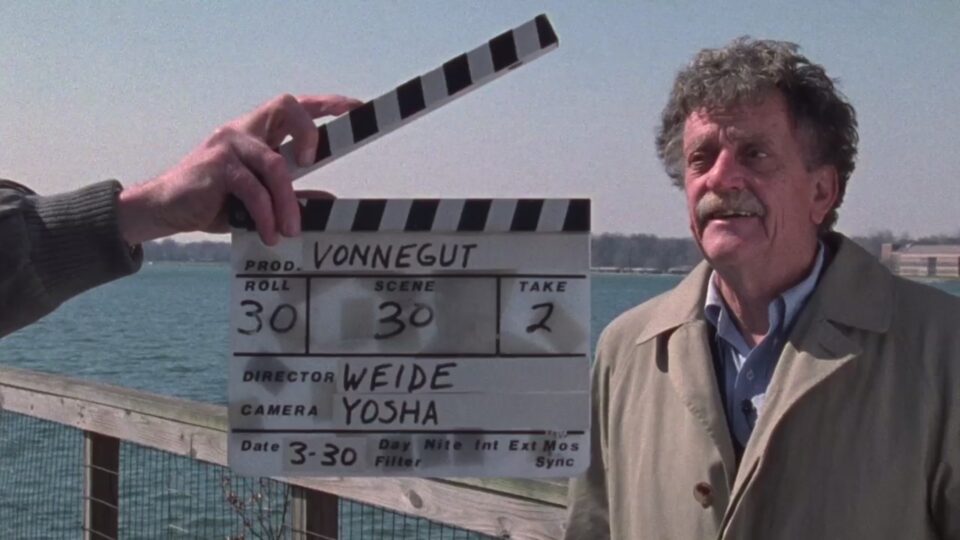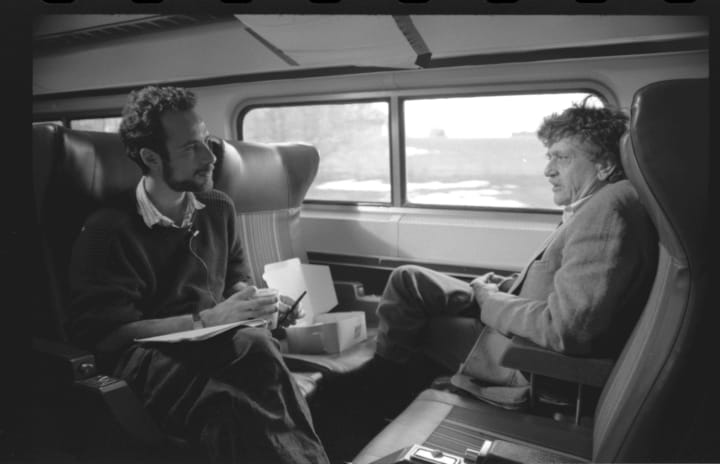Kurt Vonnegut: Unstuck in Time
15Usually what ends up determining a great documentary is the filmmaker’s relationship with their subject matter, in some shape or form. Here though, is a possible example of a filmmaker’s relationship with his subject getting in the way of the film about them.
For writer and director Robert B. Weide, it started with a letter; he was an admirer of writer Kurt Vonnegut’s work, and decided that he would be perfect fodder for a documentary, so he wrote to the writer and said just that.

So you really think I've got a shot at being the next Columbo?
Some time past, leading Weide to believe his hero was too busy to read such fan mail, when he got a reply, saying essentially that he was up for it. And so began a working relationship and friendship that would last throughout the writer’s life.
Here Weide ticks all the boxes necessary for an autobiographical film; of growing up in Indianapolis the youngest of three children, to his time in World War II at both the bloodbath that was the Battle of the Bulge in 1944 and the bombing of Dresden, to the publication of his first novel Player Piano in 1952.

So there was this film called Strangers on a Train...
It’s an extraordinary life, told so well, featuring a number of tragic events in his personal life, including the suicide of his mother and the death of his sister, whom he was very close to.
Then Weide gives an insight into his personal relationship with Vonnegut, with a true friendship blossoming over the years. So much so that Weide actually ends up in one of his books, which, as you can expect from a fan first and foremost, is simply off the scale.
It’s a fascinating account of a truly remarkable talent, filled with film footage shot of the man himself, as well as glowing contributions from family members and friends.
He may well be known as the man who wrote the classic Slaughterhouse 5, but this in depth journey inside his creative mind, may well trigger you into exploring his work further, which is possibly the highest accolade you can give any documentary.
